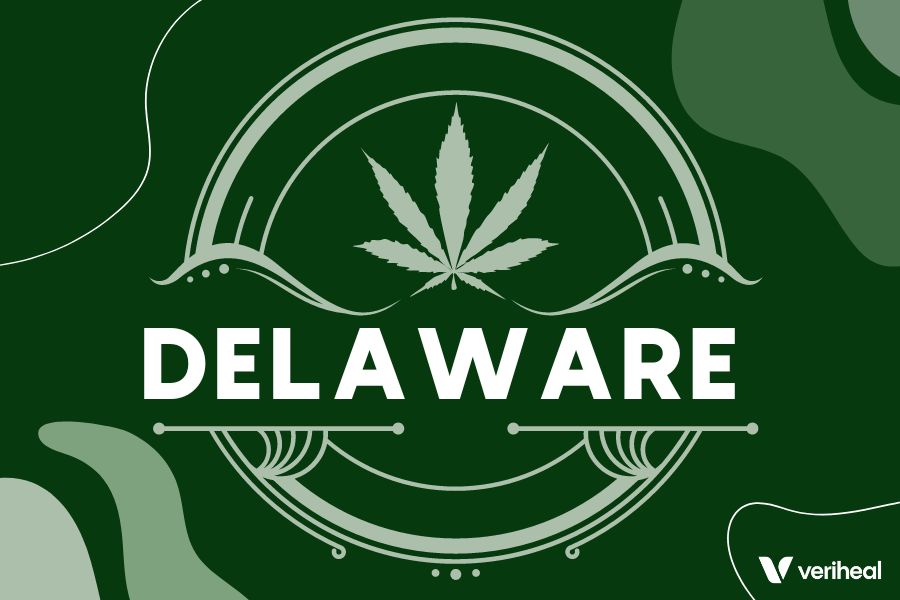On April 21, 2023, Delaware became the 22nd state to legalize marijuana—despite the governor’s opposition. Gov. John Carney (D) passed two bills to legalize cannabis into law without his signature. He announced legislation to allow the sale of recreational marijuana, and this decision marked a huge win for Democrats and marijuana supporters after many decades of fighting. They have been advocating for legalization because of the economic potential of the industry to bring in huge tax revenue.
According to the bill, every state-level civil and criminal punishment for possessing weed has been removed, and a regulated industry will be created for recreational marijuana sales. Gov. Carney has made it clear that he doesn’t consider the legalization of adult-use cannabis a step forward.
Gov. Carney’s Opposition to Legal Cannabis
Carney mentioned in a press statement that his position had not changed and that he understood that those who share the same view as him would be disappointed in his “decision not to veto the legislation.” He explained that the decision had been lingering “when Delawareans face more serious and pressing concerns every day” and that it was time to finally move on.
One of the primary reasons Carney cited for not signing the bills was his concern that recreational marijuana will have a negative impact on road safety, the health of minors, and the poorest neighborhoods in the state. Alongside House Speaker Pete Schwartzkopf, Carney is one of the few Democrats who do not support weed legalization. He mentioned that many legislators were not on his side and that he respected the legislative process. He added that prolonging the debate on the authorization of marijuana didn’t serve the interest of Delawareans.
Although recreational weed will not be officially sold in the state for the next 16 months, Delawareans are free to possess and consume it in their private residences in personal-use quantities. However, it is prohibited to use it in public places. Employers are also to maintain a zero-tolerance cannabis policy.
Gov. Carney vetoed the bill to allow recreational use of marijuana in May 2022. He explained that there were questions regarding the economic impacts and the long-term health concerns of cannabis use. There were also “serious law enforcement concerns” that remain unresolved. While the governor’s veto was expected because his opposition to full weed legalization was well-known, it is believed that he was defying the will of the majority.
The Legal Framework of Recreational Cannabis in Delaware
House Bill 1 and House Bill 2 have now been passed without the governor’s signature, and they define the legal framework of recreational cannabis legalization in Delaware.
Why You Should Get Your Medical Marijuana Card
Veriheal has satisfied millions of patients nationwide by giving them access to these benefits
- Larger purchase limits
- Peace of mind
- Enhanced legal protection
- Access to higher potency strains
- Save up to 25% on cannabis purchases
- Skip the line at the dispensary
House Bill 1 allows persons that are 21 years old and above to have, use, purchase, and share a maximum of 1 ounce of marijuana. However, it is not allowed to be exchanged as a gift to prevent misuse. Anyone under 21 years old who breaks this law can be fined up to $100 by the police if it’s their first offense. A citation can also be issued based on the discretion of the officials.
House Bill 2 creates a controlled system of the recreational cannabis market by the Division of Alcohol and Tobacco Enforcement (DATE). The market is overseen by the Marijuana Control Officer. Within the first 16 months, the agency can approve a maximum of 30 cannabis retail licenses, 30 production licenses, 60 cultivation licenses, and five testing licenses.
The new legislation applies a 15% tax to recreational cannabis sales. It also allows 7% of the tax revenue generated to the Justice Reinvestment Fund, overseen by the Department of Justice. They will be used to finance projects that would improve the quality of life in localities that have been negatively affected by laws that prohibit cannabis.
Recreational use sales of cannabis would also be subject to a control enforcement fee of 15%. Lawmakers have explained that the money would be used on restorative justice and to reduce the state’s prison population.
The legislation doesn’t change the existing state laws regarding driving under the influence of recreational drugs. It also doesn’t allow individuals to personally grow cannabis plants.
Delaware has joined the growing number of U.S. states that have legalized the adult use of marijuana. Although personal use of marijuana is now legal, its implementation and sale would still take some time and effort.
The decision on legalization is a result of extensive negotiations, discussions, and advocacy on the best way to regulate the use of recreational marijuana in the state. This milestone reveals the strong support that Delaware voters have had for marijuana legalization over the years. A poll in October 2022 revealed that 60% of registered voters favored legalizing marijuana, 30% were in opposition, and 10% were undecided.
The chief sponsor of the legalization bills, State Rep. Ed Osienski (D), acknowledged that he understood the governor’s opposition to the legislation. He then went on to appreciate his effort to prioritize the interest of the thousands of people supporting the legalization.
Author, Share & Comments
















